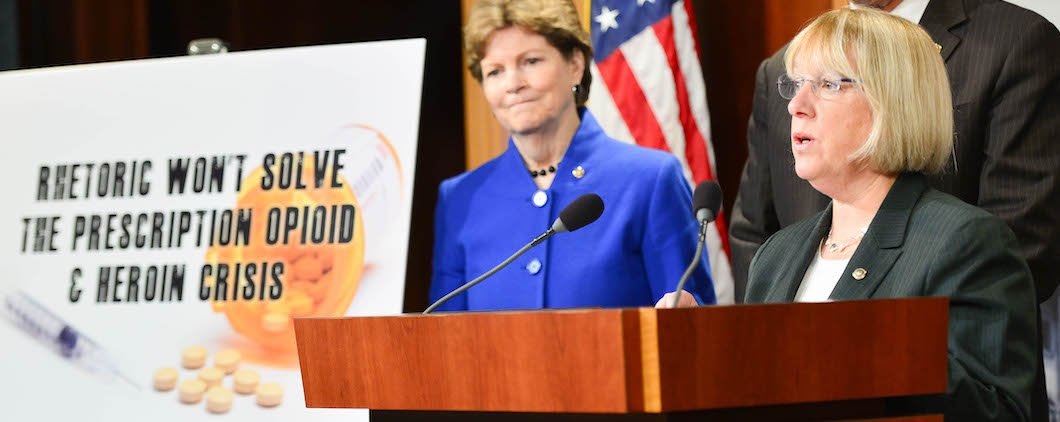A recent YouGov poll finds that three-fourths of Americans characterize opioid addiction as a serious problem in the United States. A majority also say that the number of people addicted to opioids in this country has increased over the past 10 years. Slightly fewer than half of Americans say they know someone who has been addicted to opioids, and about one-quarter say they know someone who has died from using them. Most people blame the epidemic on pharmaceutical companies and illegal drug dealers, though many also place blame on users themselves, as well as on doctors and the FDA.
Most Americans agree that there is currently an opioid epidemic in the United States, which many describe as part of a larger mental health crisis. However, Americans are more likely to view opioid addiction as a national rather than local issue. While 76% of people say addiction is a very or somewhat serious problem in the U.S., only 44% say it’s a serious problem in their local community. More also say that opioid usage has increased over the past decade nationally (62% say this) than say the same about their local communities (47%). Americans are more likely to say that opioid abuse is most common in cities (32%) than in suburbs (15%) and rural areas (14%).
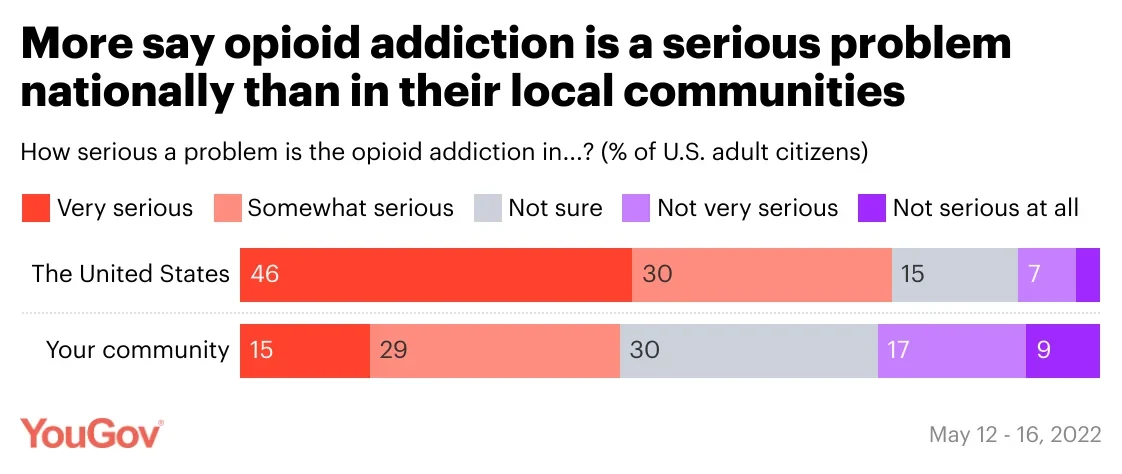
For many Americans, the issue is also personal; 43% say they know someone, including themselves, a friend, a family member, or an acquaintance, who has been addicted to opioids, and about one in four (26%) say they know someone who has died from opioids. While only 5% of people say they personally have been addicted to opioids, two in five Americans (41%) say they’ve been prescribed opioid painkillers at some point in their lives.
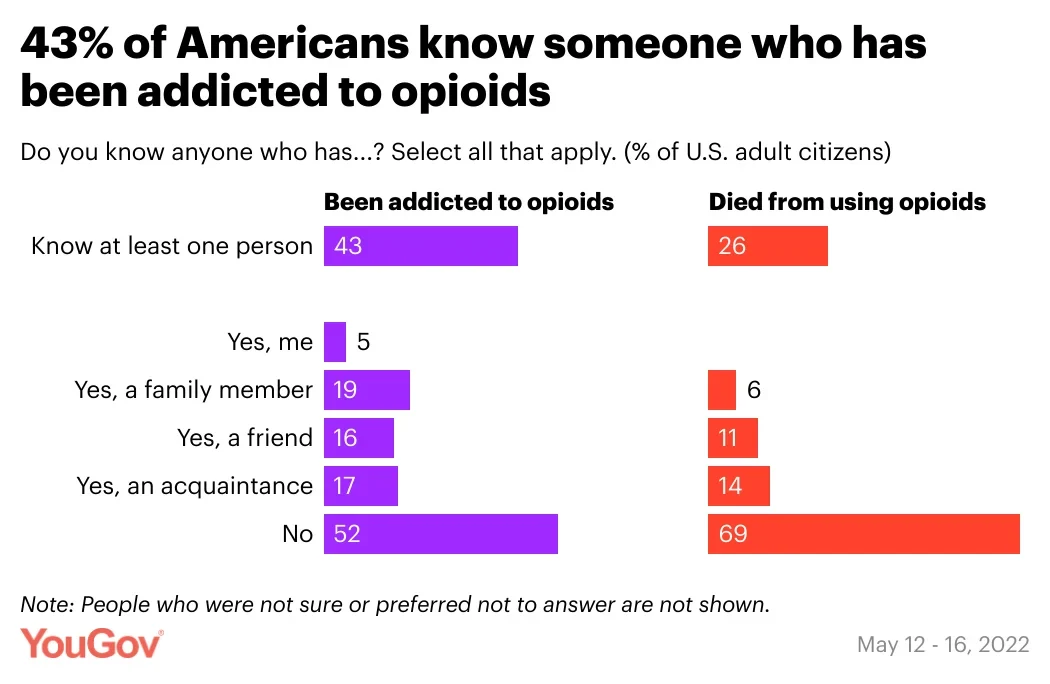
In terms of who Americans view as responsible for the opioid epidemic, two-thirds (67%) say they assign a lot of blame to drug dealers who illegally sell opioids. Many also assign a lot of blame to pharmaceutical companies that market and sell opioids (45%), as well as people who are addicted to them (32%). A significant share of Americans also place a lot of blame on the FDA, which approves opioids (29%); as well as on doctors who prescribe them (29%). Fewer place a lot of blame on pharmacists who dispense opioids (16%) and on health-insurance companies that cover them (21%).
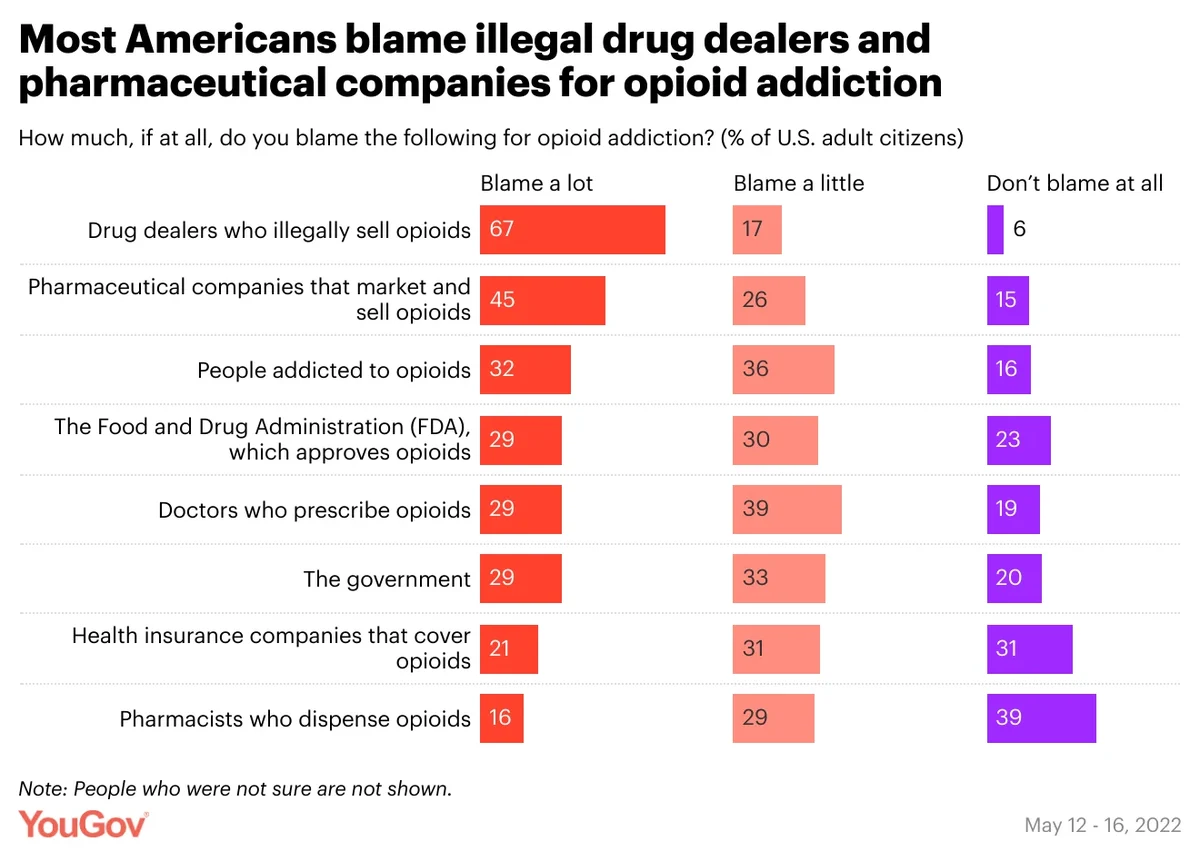
Democrats are far more likely than Republicans to blame pharmaceutical companies for the opioid crisis, and are somewhat more likely than Republicans to blame doctors and health-insurance companies. Republicans, on the other hand, are more likely than Democrats to blame illegal-drug dealers, people addicted to opioids, and the government.
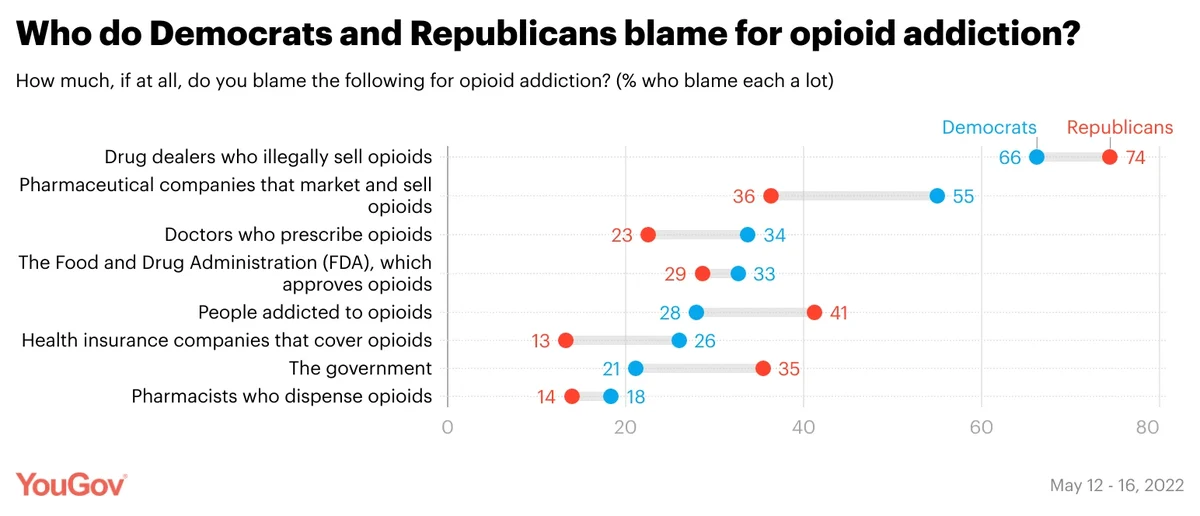
Most people (63%) say the government should do more to address opioid addiction, while only 6% say it should do less. More than half of Americans (57%) say that the government should focus more on providing treatment for people who use opioids illegally, while 22% say it should prioritize prosecuting people who use opioids illegally. Despite Americans’ concern over the problem, most of them (59%) say doctors should in some cases be allowed to prescribe opioids, while only 17% say they should not be allowed to. However, many appear open to alternative methods of pain relief as well; many say that legalizing marijuana will reduce opioid use, more than say doing so will increase opioid use or have no effect.
More Americans describe opioid addiction as an illness (46%) than as a personal weakness (29%). Women are twice as likely to describe it as an illness than as a weakness, while men were equally likely to describe it as an illness or as a weakness.
In terms of addressing the opioid epidemic, most Americans think that each of six of the seven policies polled about would be at least somewhat effective. The only policy that less than half say would be somewhat or very effective is prosecuting people who use opioids illegally. The policies that are viewed as very effective by the largest share of people include increasing access to substance-use treatment programs, providing medical treatment to people struggling with addiction, cracking down on illegal drug dealers, and educating the public on the risks of taking opioids.
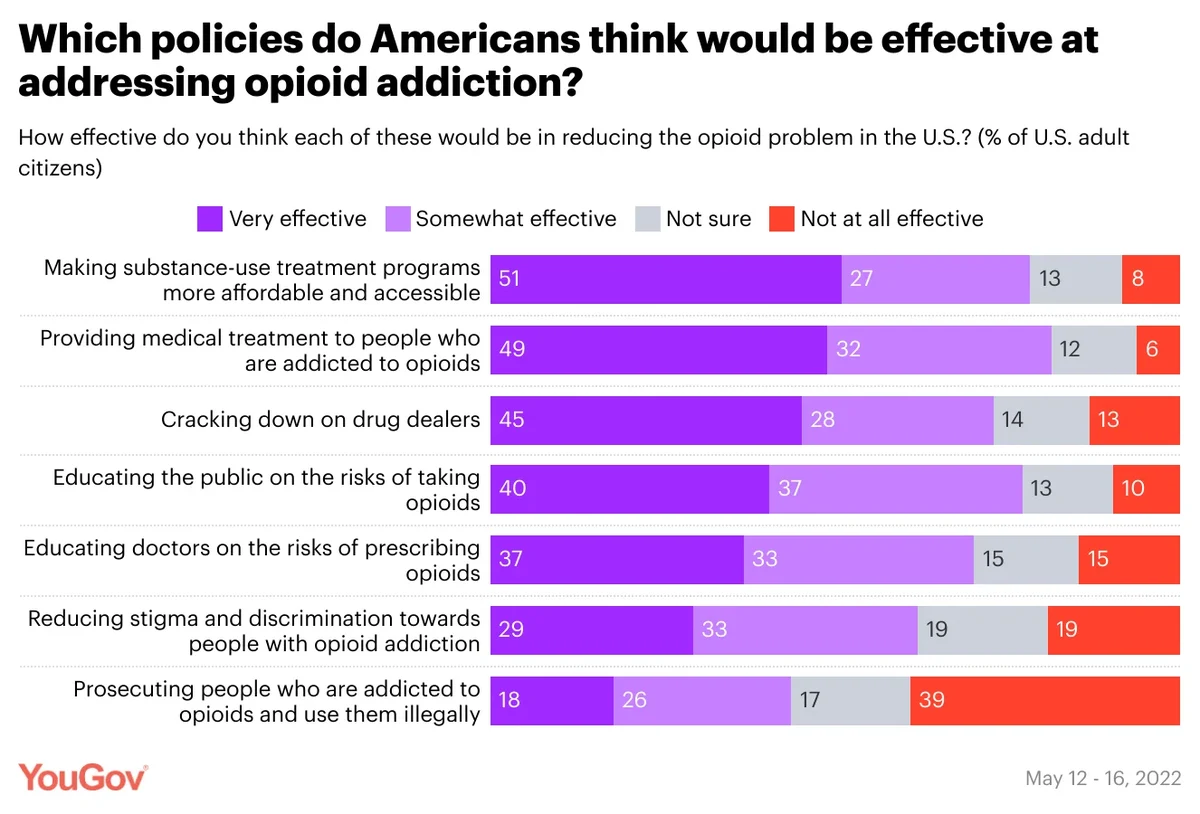
Democrats are more likely than Republicans to favor solutions to opioid addiction that involve treatment and public education, while Republicans are more likely than Democrats to favor interventions that involve law enforcement.
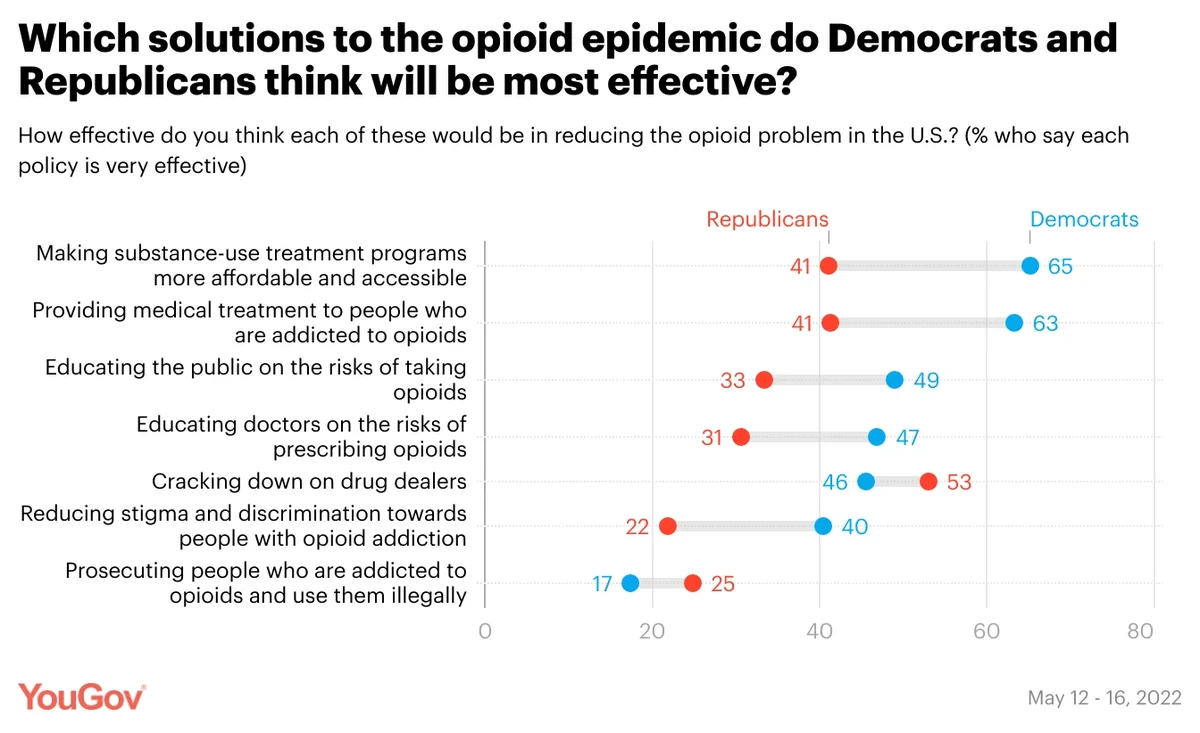
Americans are only slightly more likely to say that Democrats (25%) rather than Republicans (22%) do a better job handling opioid addiction in this country. More – 28% – say that neither party is doing a good job handling the opioid crisis. Slightly more than one-quarter of people approve of Biden’s handling of opioid addiction, while nearly twice as many disapprove.
– Carl Bialik and Linley Sanders contributed to this article.
This poll was conducted on May 12 - 16, 2022, among 1,000 U.S. adult citizens. Explore more on the methodology and data for this poll.
